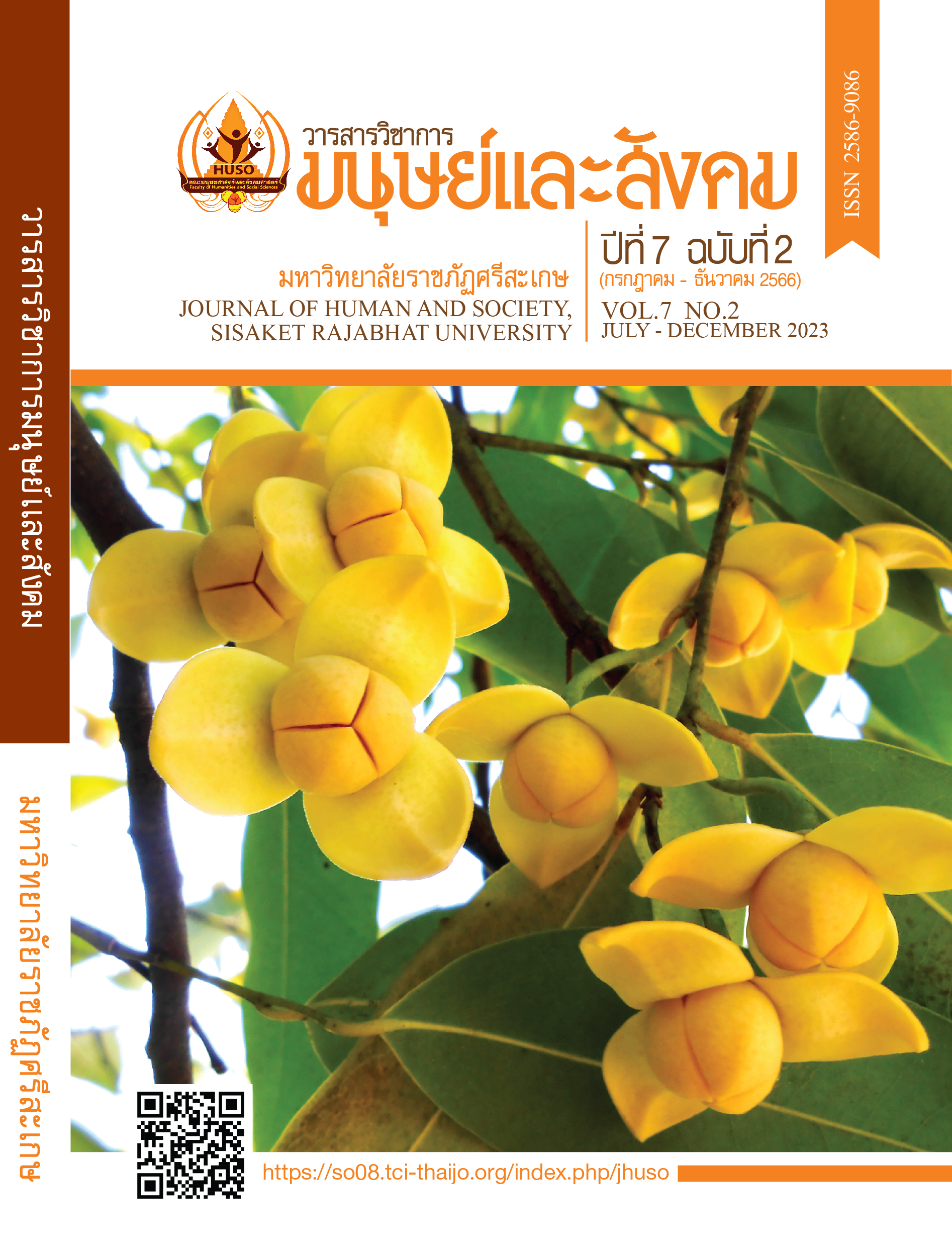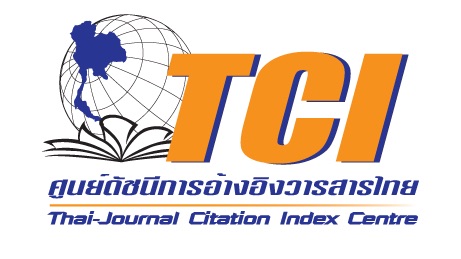A Study of Early Childhood Children Learning Behaviors through Experience Organized with Chinese Extracurricular Activities Base on a Blended Language Teaching Methodology TESSE
Keywords:
Learning Behaviors, Chinese Extracurricular Activities, Blended Language Teaching Methodology TESSEAbstract
The objectives of this study were to 1) To study the development of the Kindergarten students studying through The Chinese Extracurricular Activities Base on a Blended language teaching methodology TESSE 2) To compare the development of learning experiences after studying through The Chinese Extracurricular Activities Base on a Blended language teaching methodology TESSE with The predetermined criteria. The Research Sample consisted of 24, selected by cluster random sampling, kindergarten 3/2 (K3/2) students of Tantrarak School, Chonburi province, in the academic year 1/2022. The research instruments were The Chinese Extracurricular Activities Base on a Blended Language Teaching methodology TESSE, a manual of the Chinese Extracurricular Activities Base on a Blended Language Teaching Methodology TESSE, learning experience plans, and a structured observation form Mean, percentage, standard deviation, efficiency, and t-test (one sample) were used for data analysis.
The research results showed that 1) the learning behavior of students in every step according to the concept of the Blended Language Teaching Methodology TESSE was at a normal level, but the learning behavior of the goal-oriented aspect of the action phase was at an excellent level, and
2) the total average of learning behavior was higher than the specified standard (2.1) with a statistical significance at the .01 level.
References
กระทรวงศึกษาธิการ. (2560). หลักสูตรการศึกษาปฐมวัย พุทธศักราช 2560. โรงพิมพ์คุรุสภาลาดพร้าว.
กานต์รวี บุษยานนท์. (2559). รูปแบบการสอนที่สอดคล้องกับการเรียนรู้ของสมอง (Brain Targeted Model)กับการพัฒนาสมองและการเรียนรู้. วารสารศิลปศาสตร์ มหาวิทยาลัยอุบลราชธานี, 12(2), 160-176.
นฤมล เนียมหอม. (2556). การจัดประสบการณ์การเรียนรู้ที่เหมาะสมสำหรับเด็ก ปฐมวัย. มหาวิทยาลัยสุโขทัยธรรมาธิราช.
นันทา โพธิ์คำ. (2563). ทักษะสมองสำหรับเด็กปฐมวัย. วารสารมหาวิทยาลัยมหามกุฏราชวิทยาลัย วิทยาเขตร้อยเอ็ด, 9(2), 707-721.
ปนัดดา ธนเศรษฐกร. (2559). แลกเปลี่ยนเรียนรู้และต่อยอดทักษะวินัยเชิงบวกและทักษะสมองEF. ธนาคารไทยพาณิชย์ สำนักงานใหญ่ SCB Academy.
พัฒนา ชัชพงศ์. (2530). การจัดประสบการณ์และกิจกรรมระดับปฐมวัย. มหาวิทยาลัยศรีนครินทร์วิโรฒประสานมิตร.
ราศี ทองสวัสดิ์ และคณะ. (2529). ชุดเอกสารอบรมหน่วยที่ 6 การจัดประสบการณ์ชั้นเด็กเล็กและการศึกษาดูงาน. โรงพิมพ์คุรุสภาลาดพร้าว.
อริสา โสคำภา. (2551). พฤติกรรมทางสังคมของเด็กปฐมวัยที่ได้รับการจัดกิจกรรมเล่านิทานอิสปประกอบการใช้สถานการณ์จำลอง [วิทยานิพนธ์ศึกษาศาสตรมหาบัณฑิต]. มหาวิทยาลัยศรีนครินทร์วิโรฒ.
Dawson, P. & Guare, R. (2009). Smart But Scattered: The Revolutionary "Executive Skills" Approach to Helping Kids Reach Their Potential. The Guildford Press.
Gronlund, N. E. (1959). Sociometry in the classroom. Harper&Brothers.
Downloads
Published
How to Cite
Issue
Section
License
Copyright (c) 2023 Journal of Human and Society, Sisaket Rajabhat University

This work is licensed under a Creative Commons Attribution-NonCommercial-NoDerivatives 4.0 International License.







